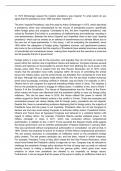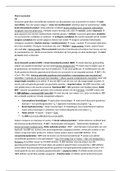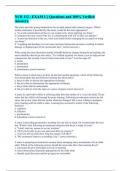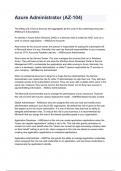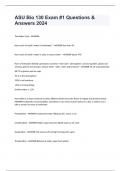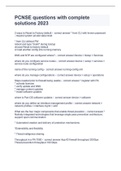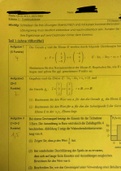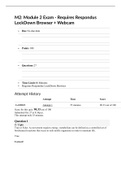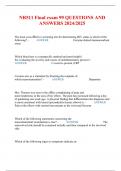Essay
ETVT the modern presidency has been 'imperial'
- Institution
- AQA
This essay achieved a high A* (28/30) and is highly likely to appear on the upcoming 2024 ALevel exam. This essay provides a clear structure, judgement, evaluations and provides a clear understanding of how to achieve an A* in your upcoming ALevel
[Show more]
